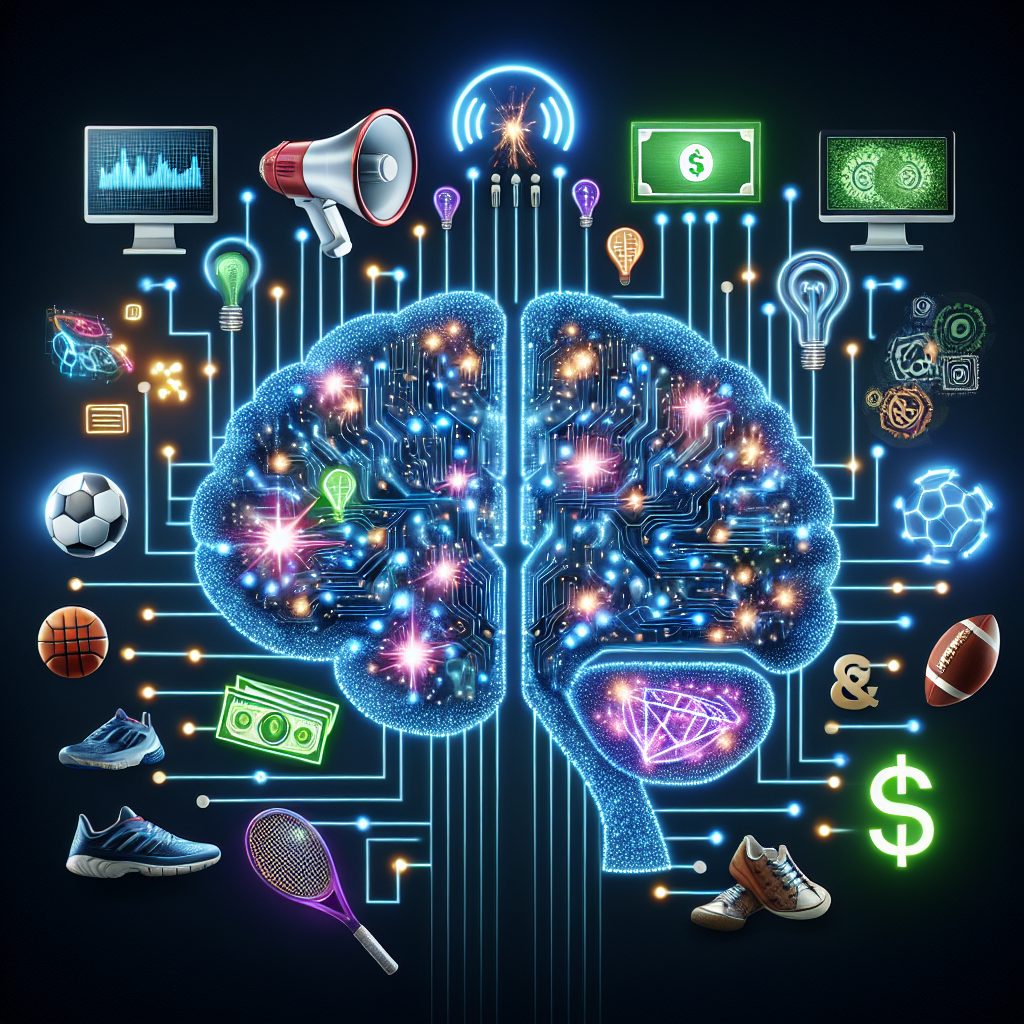In today’s highly competitive and fast-paced sports industry, marketing strategies play a crucial role in the success of teams, leagues, and athletes. With the rise of artificial intelligence (AI) technologies, sports marketing has been revolutionized, allowing for more personalized and targeted campaigns that can reach a larger audience and drive engagement. In this article, we will explore how AI is optimizing sports marketing strategies and how it is reshaping the way sports organizations connect with their fans.
AI-powered Data Analysis
One of the key ways AI is transforming sports marketing is through its ability to analyze vast amounts of data quickly and efficiently. With the help of AI algorithms, sports organizations can gather data from various sources, such as social media, ticket sales, and fan engagement metrics, and use this information to gain valuable insights into their audience’s behavior and preferences.
By analyzing this data, sports marketers can create more personalized and targeted campaigns that resonate with their fans. For example, AI can help identify which types of content fans are most likely to engage with, which influencers they follow, and which products they are interested in. This allows marketers to tailor their messaging and promotions to better meet the needs and interests of their target audience.
Predictive Analytics
In addition to analyzing historical data, AI can also help sports organizations predict future trends and behaviors. By using predictive analytics, marketers can anticipate changes in fan behavior, identify emerging trends, and forecast the impact of different marketing strategies.
For example, AI-powered algorithms can analyze ticket sales data and social media engagement metrics to predict which games or events are likely to be the most popular among fans. This information can help sports organizations allocate their resources more effectively, focusing their marketing efforts on events that are most likely to drive revenue and engagement.
Personalized Marketing Campaigns
One of the most significant benefits of AI in sports marketing is its ability to create personalized campaigns that resonate with individual fans. By analyzing data on fan preferences, behaviors, and interactions, AI can help marketers deliver targeted messages and promotions that are tailored to each fan’s interests.
For example, AI can analyze a fan’s past purchases, social media activity, and browsing history to create personalized recommendations for tickets, merchandise, or exclusive experiences. This level of personalization not only increases engagement and loyalty but also drives revenue by encouraging fans to make purchases.
Enhanced Fan Engagement
AI is also transforming the way sports organizations engage with their fans. By using chatbots, virtual assistants, and other AI-powered tools, sports marketers can provide fans with personalized, real-time interactions that enhance their overall experience.
For example, AI-powered chatbots can answer fans’ questions, provide information about upcoming games or events, and even offer personalized recommendations for merchandise or tickets. This level of engagement helps foster a deeper connection between fans and the sports organization, leading to increased loyalty and advocacy.
Optimizing Sponsorship Opportunities
AI is also helping sports organizations optimize their sponsorship opportunities by identifying the most relevant and valuable partnerships. By analyzing data on fan demographics, behaviors, and preferences, AI can help sports marketers match sponsors with the right audience and create targeted campaigns that drive engagement and brand awareness.
For example, AI can analyze social media data to identify which brands fans are most likely to engage with and create sponsorship opportunities that align with their interests. By leveraging this information, sports organizations can maximize the value of their sponsorships and create mutually beneficial partnerships that drive revenue and engagement.
Frequently Asked Questions (FAQs)
Q: How can AI help sports organizations target the right audience?
A: AI can analyze data on fan demographics, behaviors, and preferences to identify the most relevant audience segments. By leveraging this information, sports marketers can create targeted campaigns that resonate with their target audience and drive engagement.
Q: How does AI predict future trends in sports marketing?
A: AI uses predictive analytics to analyze historical data and identify patterns and trends that can help predict future behaviors. By leveraging this information, sports organizations can anticipate changes in fan behavior, identify emerging trends, and forecast the impact of different marketing strategies.
Q: How can AI enhance fan engagement in sports marketing?
A: AI-powered tools, such as chatbots and virtual assistants, can provide fans with personalized, real-time interactions that enhance their overall experience. By leveraging these tools, sports organizations can engage with fans in a more personalized and meaningful way, driving loyalty and advocacy.
Q: How does AI optimize sponsorship opportunities in sports marketing?
A: AI analyzes data on fan demographics, behaviors, and preferences to identify the most relevant and valuable sponsorship opportunities. By leveraging this information, sports organizations can match sponsors with the right audience and create targeted campaigns that drive engagement and brand awareness.
In conclusion, AI is revolutionizing sports marketing by enabling organizations to analyze data, predict trends, create personalized campaigns, enhance fan engagement, and optimize sponsorship opportunities. By leveraging the power of AI, sports marketers can connect with their fans in a more meaningful way, drive engagement and loyalty, and ultimately, achieve their marketing goals.

